Online Marketing Tips Blog
In this Daily blog, I'll try to answer the most burning questions for online marketing that I get in my consulting business. We help online business owners who are in affiliate marketing, coaching, eLearning and Online Events every single day. I'll share that info with you!

No One Knows What "Bespoke" Means. Stop Using It in Your Marketing.
When was the last time a potential customer approached you and said, "Hey, I’m really looking for a bespoke experience"? Probably never. That’s because, in the U.S., most people don’t even know what "bespoke" means. It’s a word that tries to be sophisticated but instead ends up alienating your audience. And yet, it’s popping up in marketing copy everywhere.
If you’re using "bespoke" (or any needlessly complex or trendy buzzwords) in your headlines or ads, stop. Here’s why this approach doesn’t work and what you should do instead to communicate effectively with your customers.
Why Using Confusing Words Like “Bespoke” Hurts Your Marketing
1. A Confused Mind Doesn’t Buy
Marketers have a golden rule for a reason—clarity converts. When someone reads your tagline, ad, or email, they should instantly understand your value proposition. Words like "bespoke" stop them in their tracks as they try to decode what you’re attempting to sell.
And honestly, what does “bespoke” even mean? Is it custom? Tailored? Handcrafted? Exclusive? Who knows? If your customer can’t immediately define the word, not only have you wasted your chance to capture their interest, but you’ve also given them a reason to go elsewhere.
2. Words Like “Bespoke” Aren’t Part of U.S. Consumer Vocabulary
While "bespoke" is a common term in the UK, it hasn’t crossed the pond in a meaningful way to resonate with American audiences. Certain industries, like high-end fashion or specialty tailoring, may claim "bespoke" has a place in their lexicon. But outside of these elite niches, the average American consumer doesn’t use—or understand—the term. Stick to words that people know and relate to, not terms that will confuse or distance them.
3. It Sounds Pretentious
Words like "bespoke" give off a vibe that you’re trying too hard to sound polished and exclusive. Instead of connecting with your audience, you’re showing them that you care more about sounding impressive than making them feel understood. And it’s not just "bespoke." Other offenders include:
• Utilizing (just say "using")
• Curated (would "hand-selected" work better?)
• Artisan (how about "handmade"?)
You don’t need a Harvard-level vocabulary to resonate with your audience. You need simplicity and relatability.
4. You’re Distracting From Your Message
When you use words like "bespoke," you’re forcing your audience to process your language rather than your offer. The focus should be on your product's value—not on decoding your copy. A distracting word diminishes the impact of your entire marketing message.
Why Simple Language Works Better Every Time
There’s a misconception in the marketing world that "simple" means boring. But that couldn’t be further from the truth! Clear, easy-to-understand language captures attention faster, builds trust, and drives more conversions.
Even advertising giants like Apple famously use clean, accessible language in their campaigns—even when selling high-tech products. Why? Because they know shorter, simpler words resonate better. Unlike "bespoke," simplicity invites everyone into the conversation.
Here’s why simple language will always win:
• Faster Comprehension: Your audience doesn’t have time to unravel complex phrases. They want to know what’s in it for them—instantly.
• Broader Reach: Clear terms resonate with a wide range of people, regardless of education or background.
• Stronger Connection: Using conversational language makes you sound human, not robotic or pretentious.
• Action-Oriented Copy: Shorter sentences with clear words drive action—whether it’s clicking “Buy Now” or signing up for your service.
How to Avoid Words Like “Bespoke” in Your Marketing Copy
1. Think About Your Audience
When crafting copy, always start by asking yourself this question—how does your audience speak? If your target audience is middle-income parents searching for reliable school supplies, they probably don’t use words like "bespoke" or "utilize" in their daily lives. Consider adopting their language and phrasing to make your copy more relatable.
2. Be Clear About What You’re Offering
Instead of using vague or outdated buzzwords, focus on spelling out what makes your product or service special. If you’re offering custom designs, say "custom." If you provide tailored solutions, say "tailored." The clearer your offer, the stronger your messaging.
Compare these two descriptions:
• Confusing: “Our bespoke furniture pieces elevate your space.”
• Clear: “Our custom furniture is designed to fit your home perfectly.”
Which one feels more relatable? The second one, right? Clarity beats cleverness every time.
3. Use Short, Punchy Sentences
When in doubt, trim the fluff. Simplify your sentences to get directly to the point. For example:
• Instead of saying, “We strive to offer a bespoke experience through curated solutions,” you can say, “We create unique solutions for you.”
Short and sweet.
4. Keep Up with Current Trends—but Don’t Go Overboard
While it’s tempting to sprinkle trendy sayings like "spill the tea" or "gatekeeping" into your marketing, overdoing it makes your copy feel forced. Trends come and go, but timeless, clear language sticks.
Sure, you can use a culturally relevant phrase now and then to show you’re in touch with your audience, but overusing trendy jargon can confuse or alienate certain customers.
5. Test Your Copy
Still not sure if your copy works? Test it! Share two versions—one with complicated language and another that’s clear and concise—and see which version gets better engagement.
Stop Chasing Fancy Words and Start Speaking Your Customer’s Language
Great marketing isn’t about impressing your audience with big words. It’s about making them feel seen, understood, and empowered to act.
Instead of throwing in terms like "bespoke" or "curated," pick words that clearly communicate your value. Stay conversational, relatable, and focused on your customer’s needs. Because while you may think fancy language signals sophistication, what really builds trust and drives conversions is simplicity.
Your takeaway? Customers don’t care about "bespoke"; they care about BENEFITS. Focus on telling them exactly how you can solve their problems without making them reach for a dictionary.
Keep your messaging human. Stay clear and concise. And always remember—don’t make a confused mind try to decide.
We have an incredible new course that will literally change the way you think about yourself in business as well as in life, to improve any specific portion of your life! Whether you are struggling with a personal relationship, or struggling with any aspect of your business, this 5 Step Process is truly a game changer.
We have a Podcast Review Available as well.
Disclaimer: If you click on links we provide and make a purchase, we may receive compensation. There is never any guarantee of income in any of the links or programs we provide.
If you have specific questions you would like to see answered in this blog, please send them to me at [email protected]. I will try to address every question here.
If you follow the links in my blog, some of them will be affiliate links and I will be compensated if you purchase a course or product from these links. This is no way increases your price or changes my opinion on these courses. I only recommend things I use in my business.
For the absolute best training online for Affiliate Marketing, Coaching, Events & Masterminds and eLearning - Online Courses: Check out our Flagship Program Here.

Copyright © 2025 | All Affiliate Cash | All Rights Reserved
There may be affiliate links on these pages. When you follow them and purchase something, I may be paid a commission. This does not raise your cost of the item, and does not influence my opinion or review of the item in any way.
NOT FACEBOOK™: This site is not a part of the Facebook™ website or Facebook Inc. Additionally, This site is NOT endorsed by Facebook™ in any way. FACEBOOK™ is a trademark of FACEBOOK™, Inc.

